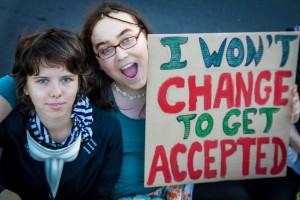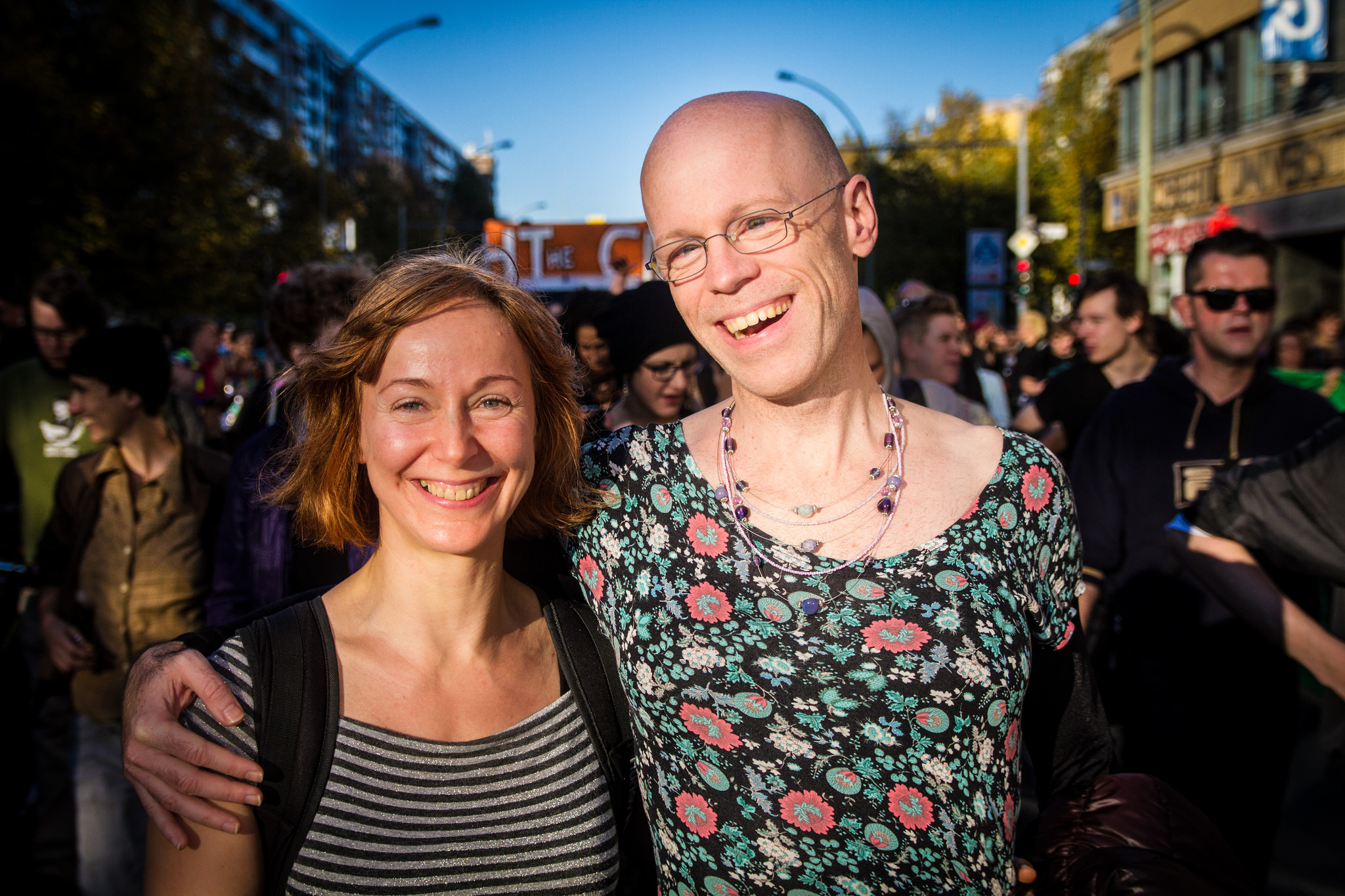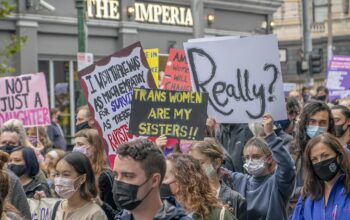Quiz time: Which Nordic country has forced sterilisation for a group of people before they are allowed to have full citizen-rights after a name change? This was a trick question, since both Finland and Norway expect their transgender citizens to prove their inability to reproduce, if they wish to enjoy such luxuries as passports, social security numbers or driver’s licenses. Other Nordics shouldn’t feel too proud, because just a few short years ago, the situation was the same in Iceland (2012), Sweden (2013) and Denmark (2014).
 Of course, nobody is collecting passports away from trans people and burning them alongside the Gävle goat. But not everyone feels the need for surgical operations or hormonal treatment that is now enforced on them to make the transitioning complete. To make the matter even more complicated, these procedures have to be started before the gender can officially be corrected. To oversimplify, at this very moment there is several guys in Norway and Finland with bushy beards and manly voices, but with names like Anne and Eva on their legal documents. The situation is confusing for everyone and can be borderline traumatic for those, who have to live through people’s disapproval.
Of course, nobody is collecting passports away from trans people and burning them alongside the Gävle goat. But not everyone feels the need for surgical operations or hormonal treatment that is now enforced on them to make the transitioning complete. To make the matter even more complicated, these procedures have to be started before the gender can officially be corrected. To oversimplify, at this very moment there is several guys in Norway and Finland with bushy beards and manly voices, but with names like Anne and Eva on their legal documents. The situation is confusing for everyone and can be borderline traumatic for those, who have to live through people’s disapproval.
Having a gender that matches the ID card can seem like a small issue, but imagine explaining in your job interview, why you seem to be a girl, but have a boy’s first name. The situation repeats itself in everyday life, when ID has to be shown. This can cause humiliating situations, pain and discrimination for trans people. Even without infertility requirements, it can take years to get assigned to the right gender.
Danes were on the same boat with Norway and Finland until very last year. Now they have set the example for new European trans person law. Denmark doesn’t impose any conditions on person’s body. One can change their gender to match the identity by walking in to a register office. The only requirements for person’s gender are a minimum of age 18 years and a six month waiting period.
Compulsory infertility isn’t the only form of discrimination that trans people can face in front of the law in Europe or even the Nordics. There is also forced divorce, if a person is married, since many states still don’t recognise same-sex-marriage. Very common practice is also receiving diagnosis for mental illness, as World Health Organisation still classifies gender dysphoria as a disorder. 34 countries in Europe, including Germany, UK and France enforce some of these forms of discrimination, although UN and EU have both adopted resolutions to end the violations of transgender rights and encourage it to be viewed as part of normal gender identity instead of something shameful.
In Northern and Western Europe, the common trend seems to be in favour of transgender people obtaining equal status in society. In 2013, 24 countries in Europe required by law that trans people undergo sterilisation before their gender can be legally confirmed. Since then, legislations have been changed in the Netherlands, Croatia and Denmark, and new bills have been addressed in Malta, Finland, Ireland and Portugal. While some of these changes have been dismissed, the issues transgender people face are talked more than ever before.
While north and west are progressing, the east is marching backwards. Just this year, Russia passed a law that makes it impossible for people with ‘mental disorders’ to get a driver’s license. This group includes transgender people, but also compulsive gamblers and pathological liars. And at the meanwhile, Hungary and Moldova have tightened their legislation on gender correction the recent years.
 On a more global scale, a new idea has entered the field of gender discussion. Third gender has been recognised in Australia, New Zealand, India, Nepal, Pakistan, Thailand and Germany as an official gender. Instead of men or women, there can be something else. From Western world point this can seem bizarre, but other forms of gender have existed throughout the time and cultures. More and more companies, organisations and even states have become aware of this limitation of gender, that doesn’t actually serve any purpose. For example, last year Facebook, a company not specifically known for its progressiveness, took a stand and added 50 new different genders for the users to choose from.
On a more global scale, a new idea has entered the field of gender discussion. Third gender has been recognised in Australia, New Zealand, India, Nepal, Pakistan, Thailand and Germany as an official gender. Instead of men or women, there can be something else. From Western world point this can seem bizarre, but other forms of gender have existed throughout the time and cultures. More and more companies, organisations and even states have become aware of this limitation of gender, that doesn’t actually serve any purpose. For example, last year Facebook, a company not specifically known for its progressiveness, took a stand and added 50 new different genders for the users to choose from.
But is there something bad about this? Could some pervert just walk to a swimming hall and tell the cashier that today they feel the opposite sex, and then just go to creep on naked strangers? To be honest, this seems highly unlikely. Our society is built around strict gender norms and breaking them won’t happen overnight. Making the transitioning an easier process would mostly improve the quality of life for those, who feel trapped in the wrong body.
‘Gender neutral’ is a term that many feel strongly about. Sweden raised some international headlines, when news about gender-free pre-school cached the attention in 2011. The teachers were not using masculine pronoun “han” or feminine “hon”, but instead a gender neutral “hen” borrowed from the Finnish language. For many this seemed that the Stockholmers were crossing the line, and men and women were not allowed to be their own respective gender anymore. But their weirdness had an actual reasoning behind it. Language can shape the way we view the world. Group of French scientist found out that Hebrew-speaking children learn their own gender a year earlier than Finnish-speaking kids. This is because Hebrew is a very gender-centered language and Finnish isn’t.
Gender identity is cultural. This is evident to us, since the expectations for men and women can vary greatly in different societies. By allowing more variation, we’re also making room for those individuals, who can’t find themselves representing the strict norms of the society. In best case scenario, more tolerant atmosphere could reduce the high number of suicides within gender minorities.
By Elena Liski
Image credit:
Picture 1 & 2: Franziska Neumeister, licensed under CC BY 2.0







